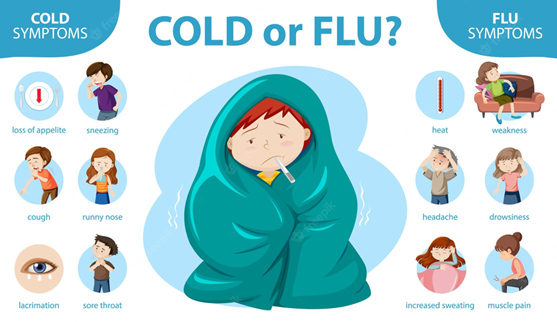Even if you don’t think your immune system can handle it, exercise is a great way to keep your body healthy and fight disease. To stay strong and healthy, you should try to exercise regularly—especially when you have the flu or a cold. Even though it may feel like you have been slogging through the mud for days on end, exercising can actually be beneficial for you. You see, a regular activity not only keeps your heart healthy and lungs clear; it also helps stimulate your brain and invigorate your muscles so they function better than ever. With that in mind, if you are sick and want to stay active, there are plenty of ways to work up a sweat while staying inside. Read on to find out more.

Feel better after a workout immediately
If you are feeling under the weather, a good workout can actually help you feel better right away. Regular exercise increases the release of endorphins, which are small proteins found in the brain and nervous system that are responsible for feelings of pleasure and well-being. Because of this, when you exercise, your brain receives signals telling it that you are happy and healthy, thus relieving stress and anxiety which are common symptoms of illness.
Stay healthy throughout your day
Exercising when you are sick is a great way to stay healthy and invigorate your immune system. Research shows that exercise can increase the production of antibodies (immune system proteins that fight germs) and boost the function of white blood cells, the cells that fight illness. This can help your body fight off infections and illnesses more effectively, and save you from going to the doctor more often. When you are sick, you are likely to have decreased energy and a poor appetite, which can lead to weight loss and muscle loss (which can cause bone loss). With that in mind, if you are sick, you should aim to be more active, so that you maintain your muscle and bone strength while boosting your energy levels.
Build up your muscles and balance loss
If you feel weak, you should aim to get more physically active. Staying active can help you build muscle mass, which can boost your strength and stamina. Additionally, exercise can help reduce the amount of fluid lost in your body when you have a fever, which can help to reduce the intensity of your symptoms. Exercising also helps ease feelings of dizziness and fatigue, two symptoms that can lead to over-exerting yourself and burnout.
Find comfort in running or yoga
If you have a runny nose or a sore throat, you may find that running or yoga are soothing, comforting activities that can help you relax. Exercise can help relieve stress and anxiety, and when you are feeling anxious, it can help you relax. Regular aerobic activity can also help reduce fatigue and improve your overall energy levels, which can be especially helpful if you are sick and fatigued. There are limitless ways to stay active while sick, whether you prefer indoor or outdoor activities. You prefer to run while you’re sick or prefer to practice yoga while you’re under the weather.
Don’t forget about strength training for muscle gain and bone strengthening
For the best immune benefits, try to incorporate strength training into your routine, especially when you are sick. Strength training causes your muscles to contract and relax repeatedly, giving them a workout that is similar to that of running. That means you can work out even when you don’t feel like it, and it can help to build up your strength and endurance. Strength training can also help to strengthen your bones and boost their density (a crucial part of keeping your bones strong and healthy as you age). This is especially important for people who are elderly and who are more likely to suffer from osteoporosis, a condition that causes weak bones.
Wrapping Up
Exercising when you are sick is a great way to stay healthy and invigorate your immune system. Regular activity can help boost the production of antibodies and increase the function of white blood cells, which can help your body fight off illness more effectively and save you from going to the doctor as often. Strength training can also help to build up your muscles and balance the loss of fluid in your body, reducing feelings of fatigue and dizziness. When you are sick, you should aim to be more active so that you maintain your muscle and bone strength while boosting your energy levels and strength. Strength training can also help to strengthen your muscles and boost your bone density, which is especially important for people who are elderly and who are more likely to suffer from osteoporosis.








